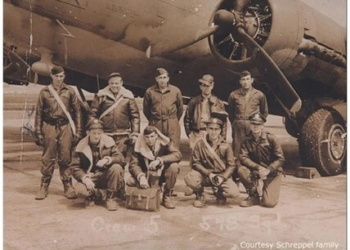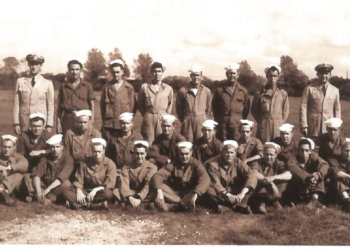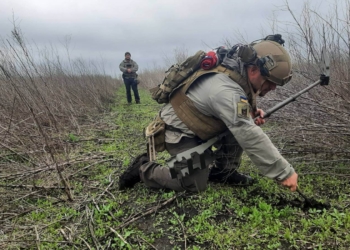The Veterans Community Project (VCP) co-founders don’t think of themselves as influencers. They also never dreamed that their tiny home concept would turn into a national expansion project in which cities all over the country would be vying for them to come their way.
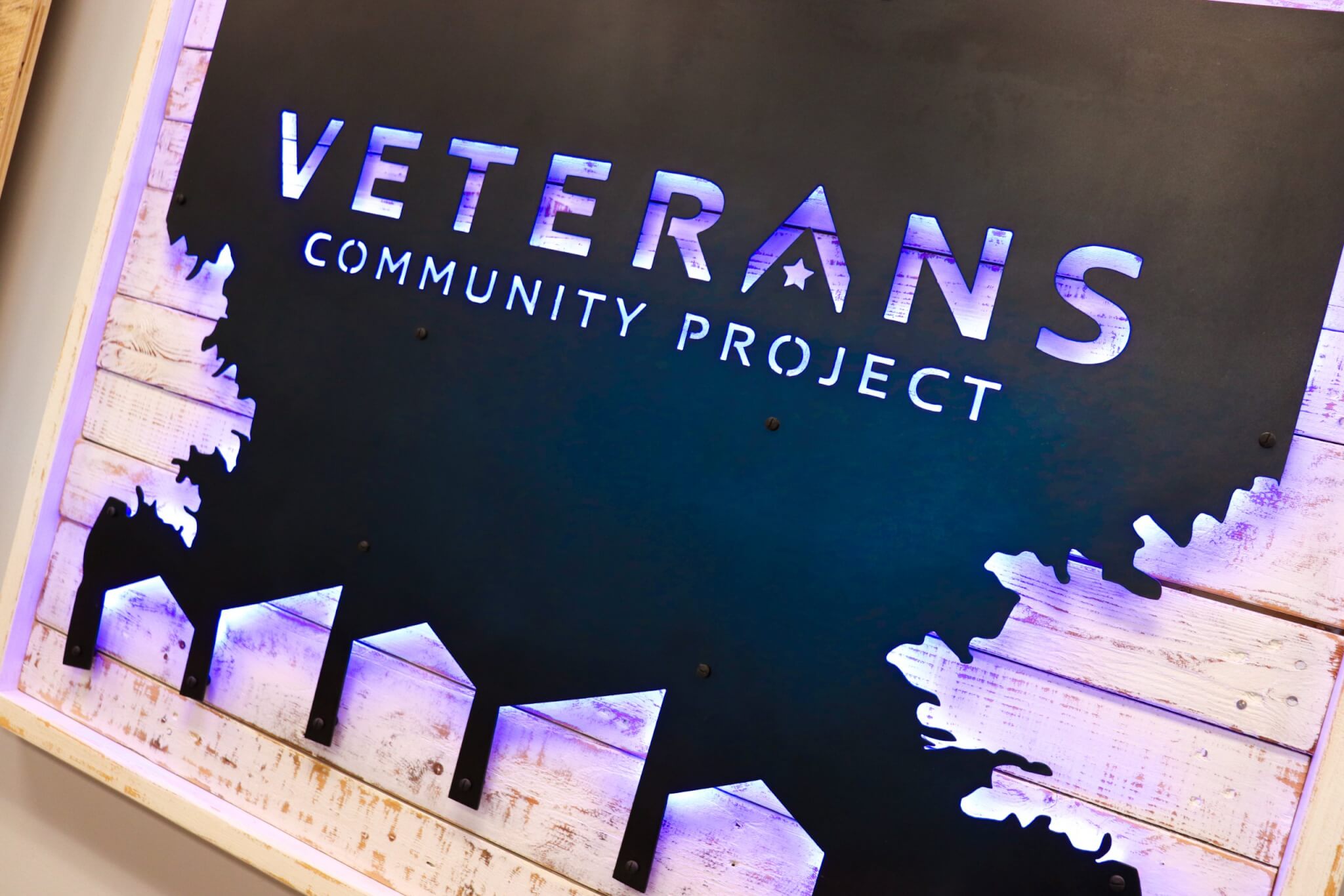
Veteran and CEO Bryan Meyer is a native of Kansas City, Missouri, which is the site of the original VCP village. He enlisted in the Marine Corps right out of high school.
“I was actually in boot camp when Sept. 11 happened. So, I joined before it all got crazy. But it all got crazy pretty quick,” he explained. “I deployed twice to Iraq as a crew chief on a helicopter, basically a door gunner.”
Meyer shared that when he returned home after leaving the Marine Corps, he came home to what he termed a great situation. Despite that, he was struggling.
“It all kind of cumulated when I found myself standing in front of a judge one day,” Meyer shared. He explained that the judge told him he needed to get some counseling and start working on himself or he was going to put him in jail. Meyer took the judge’s advice and went to college, narrowly avoiding prison. In fact, he received his master’s and decided to go to law school.
Despite having numerous offers for high paying attorney positions, he felt called to do something to support other veterans. “I started a nonprofit to give veterans free legal services and it was through that nonprofit and working with other vets in the community is how I connected with the other cofounders. We all kept running into the same things working with this population. Lack of services and a complete lack of service for the homeless population,” Meyer explained.
Co-founder and Chief Projects Officer Brandon Mixon was also looking for purpose and a way to serve veterans. But before that, he was simply trying to stay alive.
Mixon’s journey to joining the Army started as a way to find a way to belong. After completing his initial training, he became a Black Hawk mechanic and ended up at Fort Bragg, North Carolina with the 82nd Airborne. Mixon shared that he loved flying and the camaraderie he built with his fellow soldiers. In 2011, he volunteered to deploy to Afghanistan.
After arriving at Bagram Air Base, Mixon was unloading the C5 aircraft when one of the bags he tossed to another soldier caught on his uniform, pulling him three stories to the ground. “It was about three stories. I landed on my head and left shoulder,” he explained. Although Mixon thought he was fine after he got up, he began having issues with headaches and his shoulder falling asleep. He went to the doctor for his issues and was initially prescribed ibuprofen.
During a combat flight, his shoulder was dislocated. He was medivacked to Landstuhl in Germany after doctors realized his shoulder issue was more severe than they had originally assumed.
“I ended up going through testing and come to find out I had a traumatic brain injury,” Mixon said. He also had multiple crushed vertebrae and ruptured muscles in his shoulder.
While still in Landstuhl, two pilots he was friends with were shot down in combat. Although they survived, he began to feel guilt, thinking it was his fault because he wasn’t there to spot incoming artillery. “I started blaming myself,” Mixon said. His medical issues were so serious that he required extensive rehabilitation and cognitive therapy. Mixon was sent back to Fort Bragg, against his wishes to remain in Afghanistan.
Mixon began his treatment and was put on honor guard for funeral ceremonies.
“That’s when it really hit me. I had never seen the aftermath,” he said. This also brought on even more guilt for him, he shared. When doctors then told him that because his needs were so extensive they were going to medically retire him, Mixon was devastated.
When Mixon’s Army career was ended, he admits that he spiraled. His wife had him on suicide watch because things got so bad. But then he got a call that would change everything.
“Chris called me and said ‘Hey dude, do you have some extra money? We need to put a vet up in a hotel.’ This blew my mind because I thought all veterans qualified for benefits up until that moment,” he said. After that, he vowed he would never leave a veteran behind.
Mixon got together with Meyer, Vincent Morales, and Mark Soloman, and they decided to form their own nonprofit dedicated to veterans. Veterans Community Project was born.
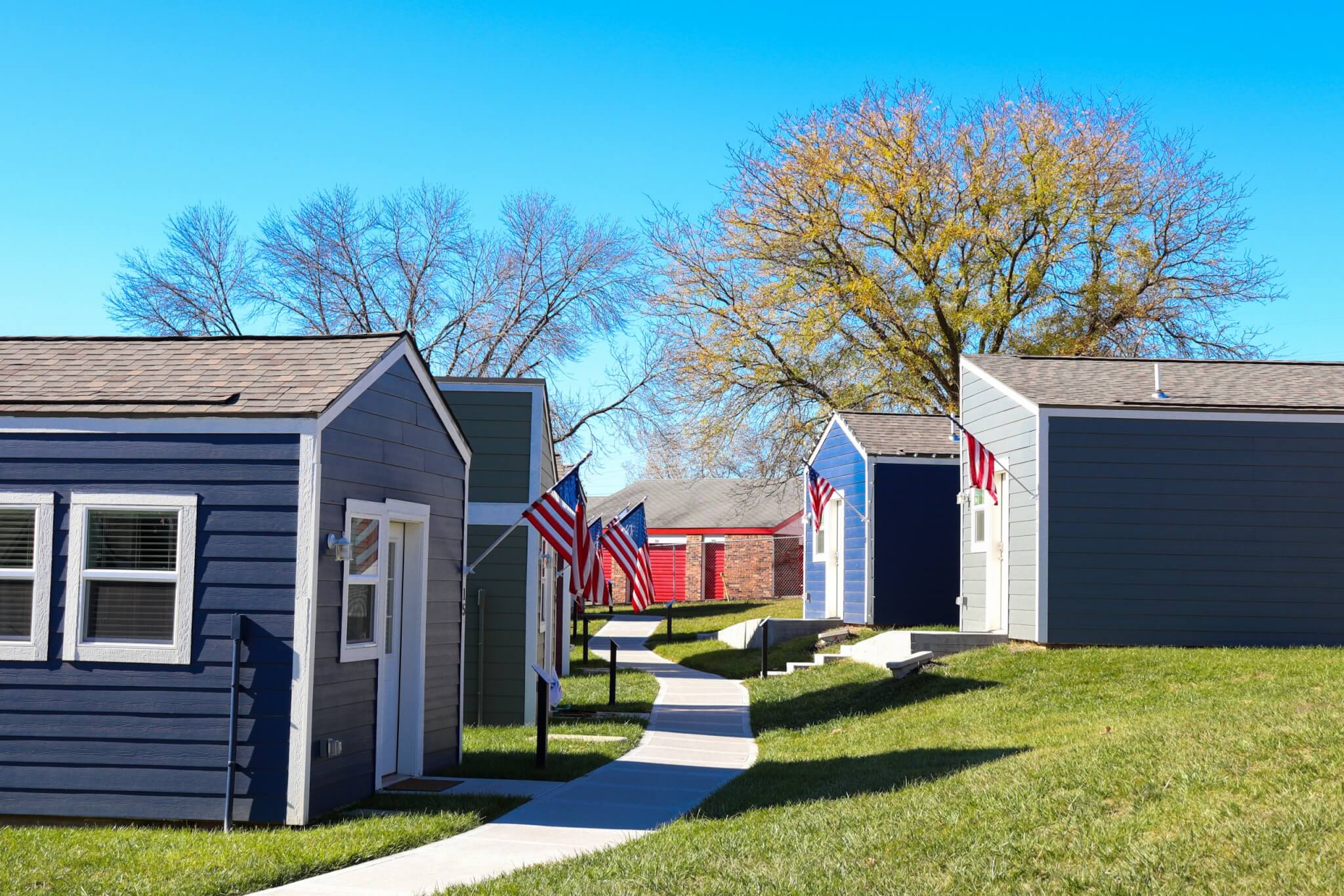
“All they need is someone saying I have your back,” Mixon explained.
Meyer shared that if a veteran is worried about where they are going to sleep or how they are going to eat, they can’t focus on their mental health or any addiction struggles they may be facing.
“We flip it, let’s start with the things at the immediate hierarchy of needs, and then we can focus on the underlying stuff because it’s the underlying stuff that really fixes homelessness. A roof over their head is just a patch,” he explained.
The solution VCP offers is to provide critical services through their walk-in outreach center, which provides a one-stop-shop solution for almost every issue a veteran could face. They also offer transitional housing through their tiny homes. With both, veterans receive the wrap-around services they desperately need to get back on their feet.
Visit Veterans Community Project to learn more.
“The reason we are able to have an innovative entrepreneurial model is because we don’t rely on traditional sources of funding for what we do,” Meyer explained. “We are completely funded by individuals, corporations, and foundations. Without that support, we can’t do what we do.”
VCP is now located in three major cities with a plan to expand to eight by 2022.



















